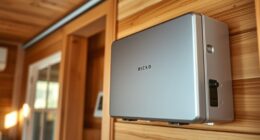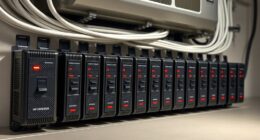In our guide to maximizing the efficiency of your home’s heat pump, we are committed to equipping you with the necessary information and resources to optimize the performance of your heating system.
With a focus on technical details and informative advice, we’ll explore topics such as heat pump efficiency ratings, proper installation, maintenance, and the integration of smart technology.
By following our recommendations, you can enhance your heat pump’s performance and take advantage of government incentives, all while serving your own comfort and energy-saving goals.
Key Takeaways
- Coefficient of performance (COP) and Heating seasonal performance factor (HSPF) are important measures of heat pump efficiency.
- Proper sizing and capacity selection is crucial for maximizing energy efficiency and avoiding performance issues.
- Optimal placement, installation, and insulation contribute to the overall efficiency of the heat pump.
- Regular maintenance, cleaning, and the use of smart technology can greatly improve heat pump efficiency.
Understanding Heat Pump Efficiency Ratings
Let’s dive into the topic of understanding heat pump efficiency ratings. When it comes to heat pump efficiency, two important ratings to consider are the coefficient of performance (COP) and the heating seasonal performance factor (HSPF).

The COP measures the efficiency of the heat pump in heating mode, while the HSPF provides an overall efficiency rating for both heating and cooling. Factors that affect heat pump efficiency include outdoor temperature, insulation levels, and the size and capacity of the heat pump.
Operating the heat pump at extreme temperatures can decrease its efficiency, while proper insulation and regular maintenance can help improve efficiency. Understanding these ratings and factors will help you choose the right size and capacity for your heat pump, ensuring optimal efficiency and comfort in your home.
In the next section, we’ll explore the importance of choosing the right size and capacity for your heat pump installation.
Choosing the Right Size and Capacity for Your Heat Pump
When choosing the right size and capacity for your heat pump, it’s crucial to consider the optimal size considerations and energy efficiency.

The size of the heat pump should be determined by the heating and cooling needs of the space, taking into account factors such as the square footage, insulation, and climate.
Additionally, selecting a heat pump with the appropriate capacity ensures that it can effectively meet the heating and cooling demands of your home while maximizing energy efficiency.
Optimal Size Considerations
We should consider the optimal size and capacity for our heat pump to maximize its efficiency. When selecting a residential heat pump size, it’s crucial to match it to the heating and cooling needs of your home. A heat pump that’s too small will struggle to meet the demand, resulting in poor performance and increased energy consumption. On the other hand, a heat pump that’s too large will cycle on and off frequently, leading to inefficient operation and unnecessary wear and tear.
To determine the right size for your heat pump, it’s recommended to consult with a professional HVAC technician who can perform a load calculation based on factors such as the size of your home, insulation levels, number of occupants, and climate conditions. By choosing the optimal size and capacity, you can ensure that your heat pump operates at its highest efficiency, providing you with optimal comfort and cost savings.
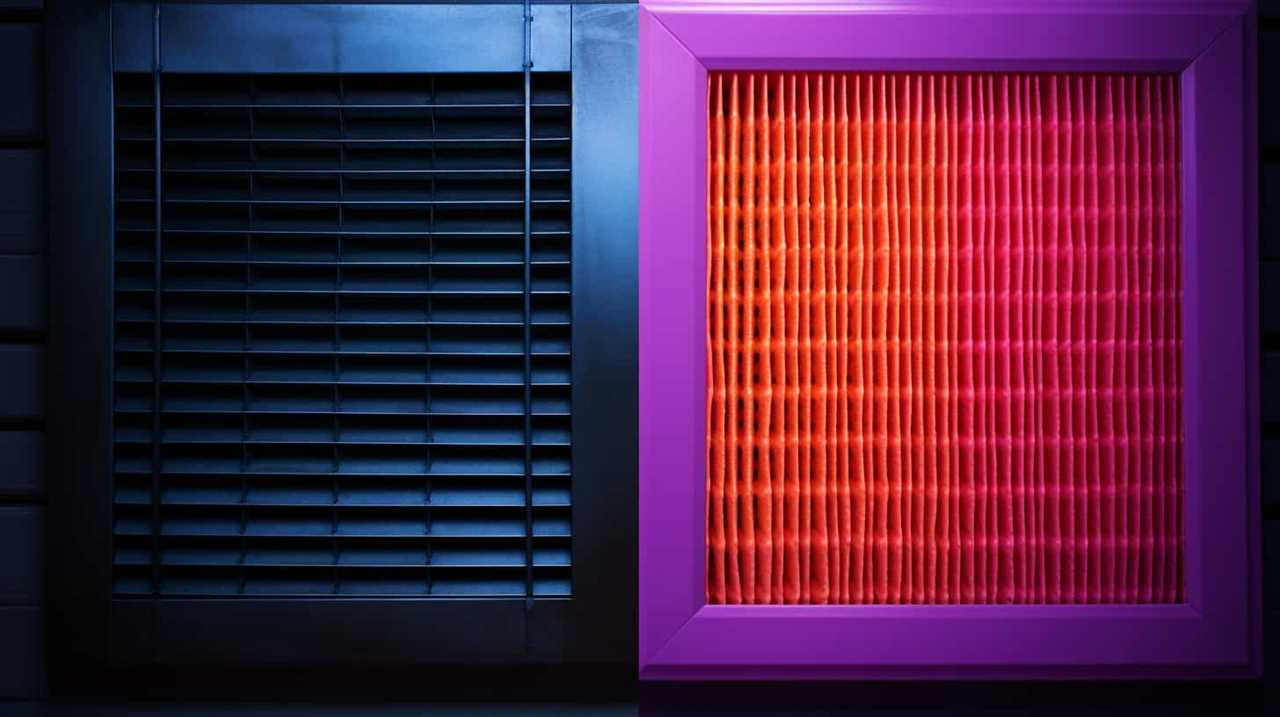
Considering the optimal size and capacity of a residential heat pump is just the first step in maximizing its efficiency. The next section will delve into the importance of heat pump capacity and its impact on energy efficiency.
Capacity and Energy Efficiency
To ensure optimal efficiency, it’s crucial to choose the right size and capacity for our residential heat pump. Proper heat pump sizing is essential to ensure that the unit can effectively heat or cool our homes without wasting energy. When selecting the capacity of our heat pump, we must consider factors such as the size of our home, insulation levels, climate, and the desired temperature range.
Here are five key considerations for choosing the right size and capacity for our heat pump:
- Calculate the heating and cooling load of our home to determine the required capacity.
- Avoid oversizing the heat pump, as it can lead to short cycling and decreased energy efficiency.
- Take into account any future changes to our home, such as additions or renovations.
- Consider the heat pump’s seasonal energy efficiency ratio (SEER) and heating seasonal performance factor (HSPF) ratings for energy consumption.
- Consult with a professional HVAC contractor to ensure accurate heat pump sizing and capacity selection.
Optimal Placement and Installation for Maximum Efficiency
For optimal efficiency, we recommend placing and installing the residential heat pump in a location that allows for proper airflow and minimizes obstructions. Optimal positioning is crucial to ensure the heat pump operates at its peak performance.
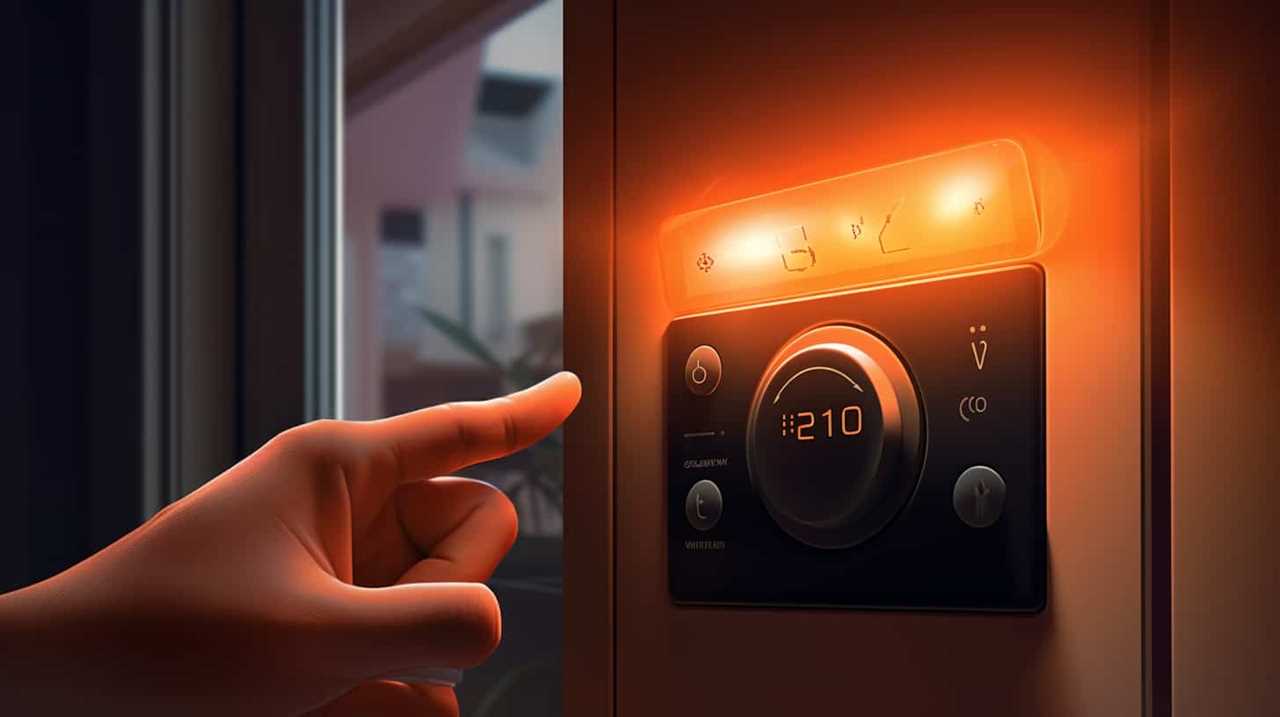
When choosing a location, consider the following airflow considerations.
-
First, ensure that the heat pump isn’t obstructed by walls, furniture, or other objects that could limit the airflow. It’s important to maintain a clear space around the heat pump to allow for unrestricted airflow.
-
Additionally, avoid placing the heat pump in areas with high levels of dust or debris that could clog the air filters and reduce efficiency.
-
Lastly, consider the noise factor when selecting a location, as it may affect the comfort of the occupants.
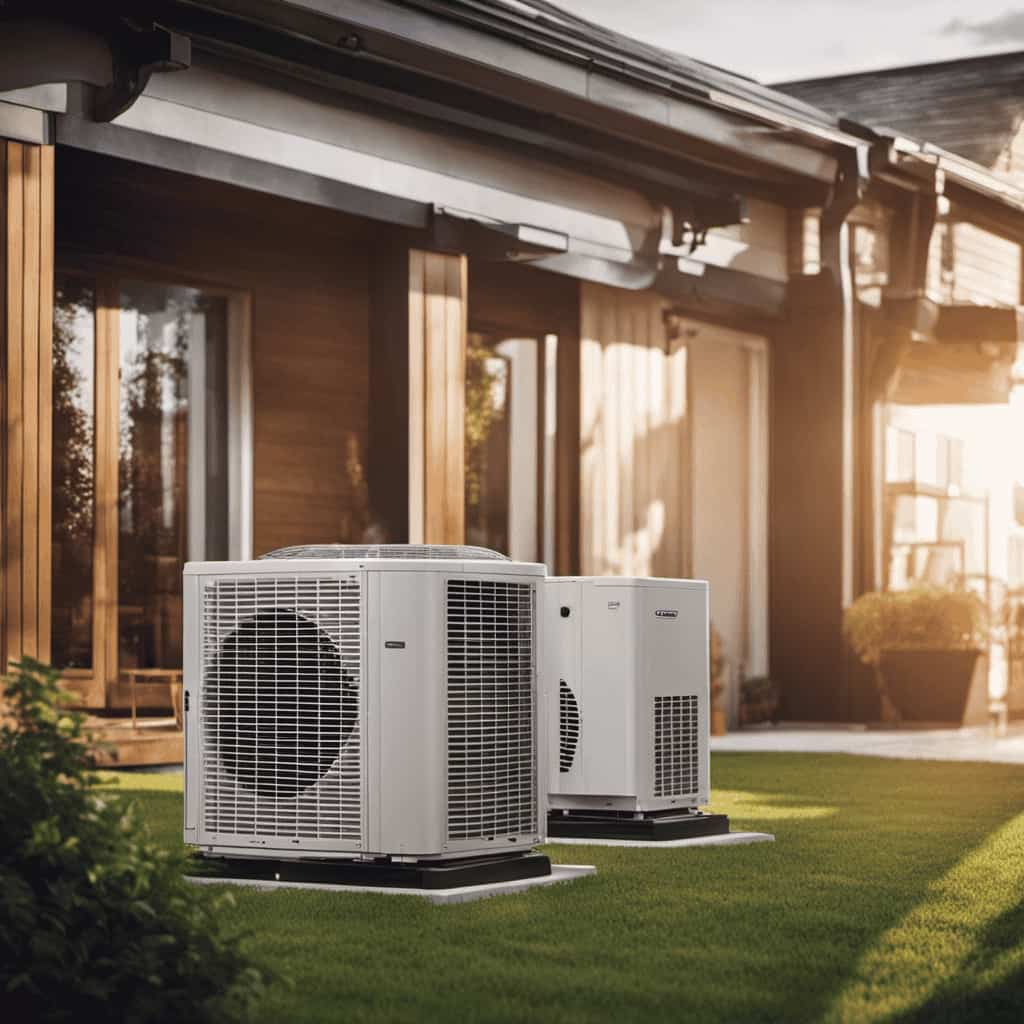
Proper Insulation and Air Sealing to Enhance Heat Pump Performance
By ensuring proper insulation and air sealing, we can significantly enhance the performance of our heat pump. Here are some key techniques to consider for effective insulation and air sealing:
-
Sealing air leaks: Identify and seal any gaps or cracks around windows, doors, and other openings to prevent warm air from escaping and cold air from entering.
-
Insulating walls and ceilings: Install insulation materials such as fiberglass, cellulose, or foam in walls and ceilings to reduce heat transfer and improve energy efficiency.
-
Insulating ductwork: Insulate ducts to minimize heat loss during the distribution of heated or cooled air throughout the house.
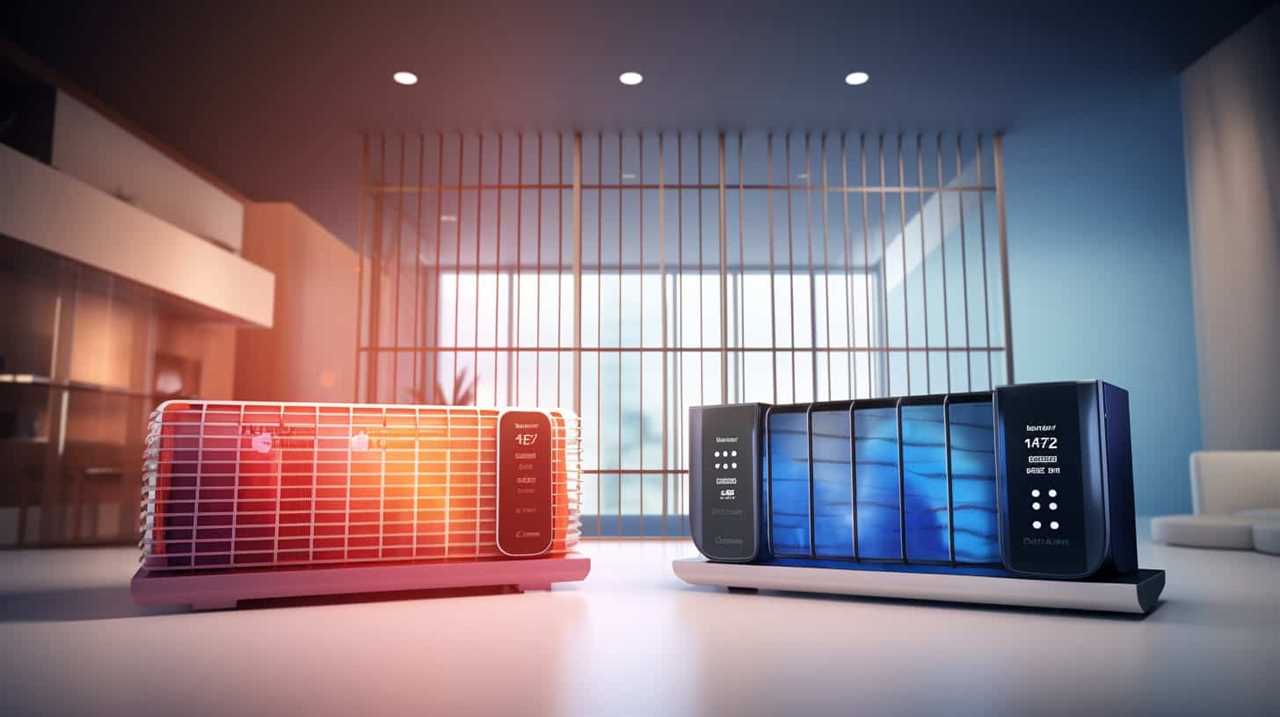
-
Weatherstripping doors and windows: Add weatherstripping to seal gaps around doors and windows, preventing air leakage and improving indoor comfort.
-
Using thermal curtains or blinds: Install thermal curtains or blinds to reduce heat transfer through windows, keeping warm air inside during winter and blocking heat gain during summer.
Implementing these air sealing and insulation techniques will help optimize the performance of your heat pump, allowing it to operate more efficiently and effectively, while reducing energy consumption and improving overall comfort levels in your home.
Regular Maintenance and Cleaning for Improved Efficiency
We can optimize the efficiency of our residential heat pump by regularly performing maintenance and cleaning tasks. Regular maintenance is essential to ensure that the heat pump operates at its peak performance.

Here are some useful tips for regular maintenance:
-
Clean or replace air filters: Clogged or dirty air filters can reduce the airflow and strain the system. Clean or replace them every 1-3 months.
-
Check and clean the outdoor unit: Remove any debris, leaves, or dirt that may obstruct the airflow. Use a hose to gently wash the unit.
-
Inspect the ductwork: Check for any leaks or obstructions in the ductwork, as they can reduce the efficiency of the heat pump.
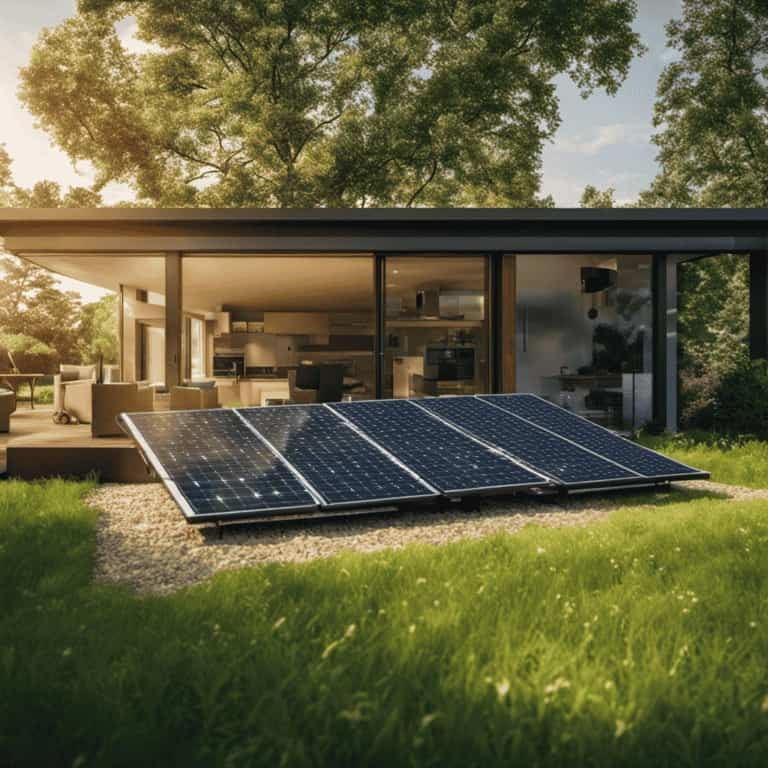
-
Schedule professional maintenance: It’s recommended to have a professional technician inspect and maintain the heat pump annually.
When it comes to cleaning techniques, always refer to the manufacturer’s guidelines. Avoid using harsh chemicals or abrasive materials that can damage the heat pump.
Regular maintenance and cleaning won’t only improve the efficiency of your heat pump but also extend its lifespan.
Utilizing Programmable Thermostats for Energy Savings
When it comes to utilizing programmable thermostats for energy savings, there are several key points to consider.

First, optimal temperature programming allows homeowners to set different temperatures for different times of the day, ensuring that the heat pump is only working when necessary.
Second, energy-saving scheduling strategies, such as setback and set-forward, can be implemented to further reduce energy consumption during periods of low occupancy.
Lastly, the convenience of remote control functionality allows users to adjust temperature settings from anywhere, maximizing comfort and efficiency.
Optimal Temperature Programming
To maximize energy savings, utilize programmable thermostats for optimal temperature programming in residential heat pump systems. By programming your thermostat to adjust the temperature based on your daily schedule and preferences, you can effectively reduce energy consumption and lower your utility bills.
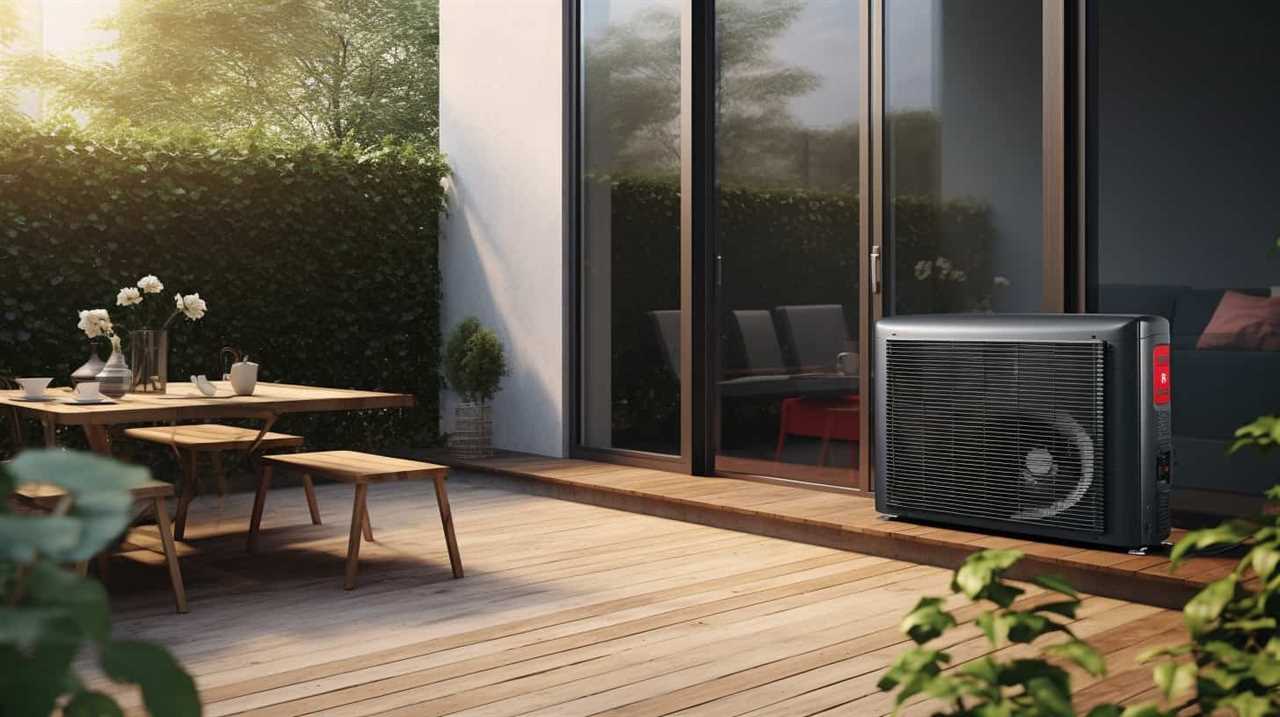
Here are some energy saving techniques to consider when programming your thermostat:
- Set lower temperatures during periods of inactivity, such as when you’re away from home or asleep.
- Use setback and recovery programs to gradually adjust the temperature before you wake up or return home.
- Avoid extreme temperature changes by setting moderate setback temperatures.
- Take advantage of the thermostat’s scheduling features to automatically adjust the temperature throughout the day.
- Consider zoning options to independently control temperatures in different areas of your home.
Energy-Saving Scheduling Strategies
Our energy-saving scheduling strategies, combined with the use of programmable thermostats, can significantly reduce energy consumption and improve the efficiency of residential heat pump systems.
By utilizing a smart thermostat, homeowners can easily set up energy-saving schedules to align with their daily routines. These schedules can be customized to automatically adjust the temperature based on occupancy patterns, ensuring that the heat pump operates efficiently when needed and reduces energy consumption during periods of low activity.
Additionally, incorporating energy-saving habits such as setting lower temperatures during sleeping hours and when the house is unoccupied can further optimize energy usage.
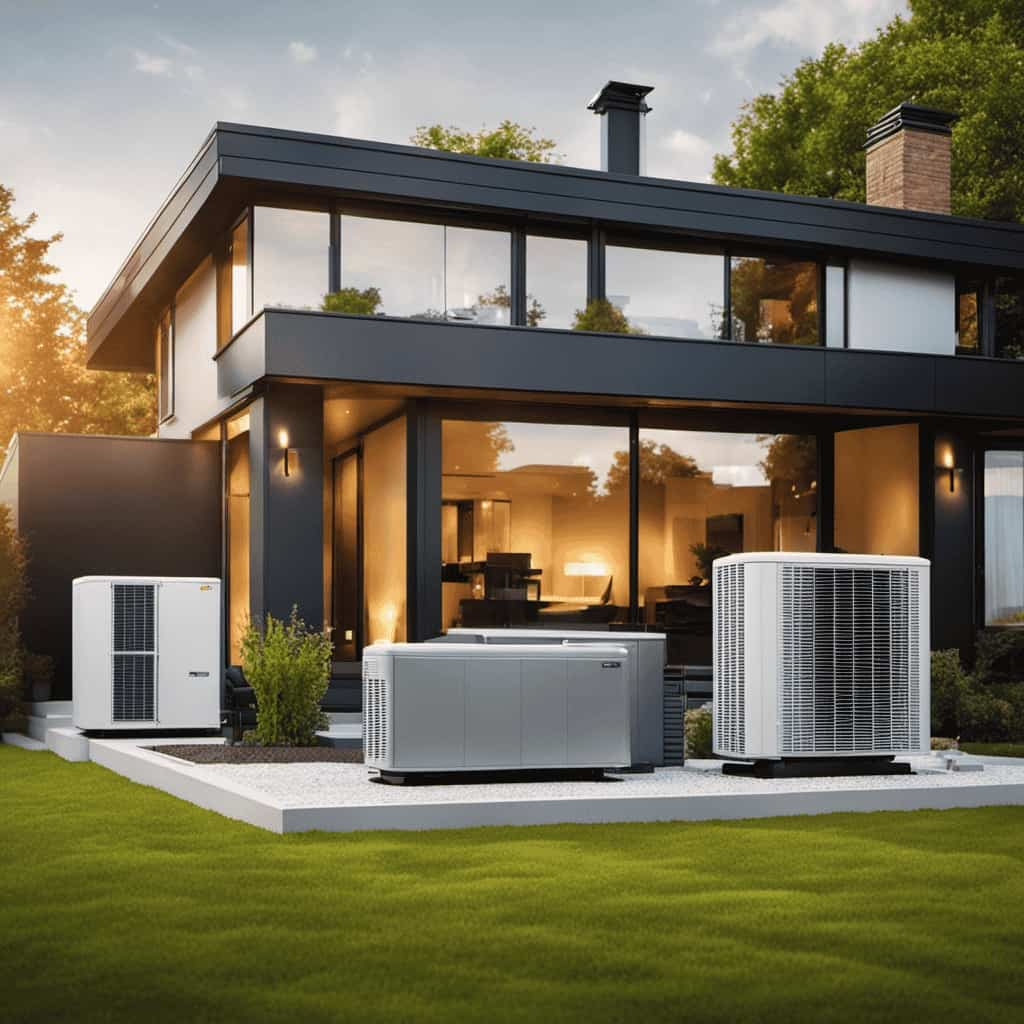
Programmable thermostats also offer the convenience of remote access, allowing homeowners to adjust settings even when they’re away from home.
Remote Control Convenience
By utilizing programmable thermostats, we can conveniently control and optimize energy usage for our residential heat pump system. These thermostats come equipped with energy-saving features and remote temperature control capabilities, allowing us to efficiently manage our heating and cooling needs. Here are five benefits of using programmable thermostats:
-
Energy savings: Programmable thermostats allow us to set specific temperature schedules, ensuring that our heat pump operates at optimal efficiency.
-
Convenience: With remote temperature control, we can adjust the settings of our heat pump from anywhere, providing us with ultimate convenience and comfort.
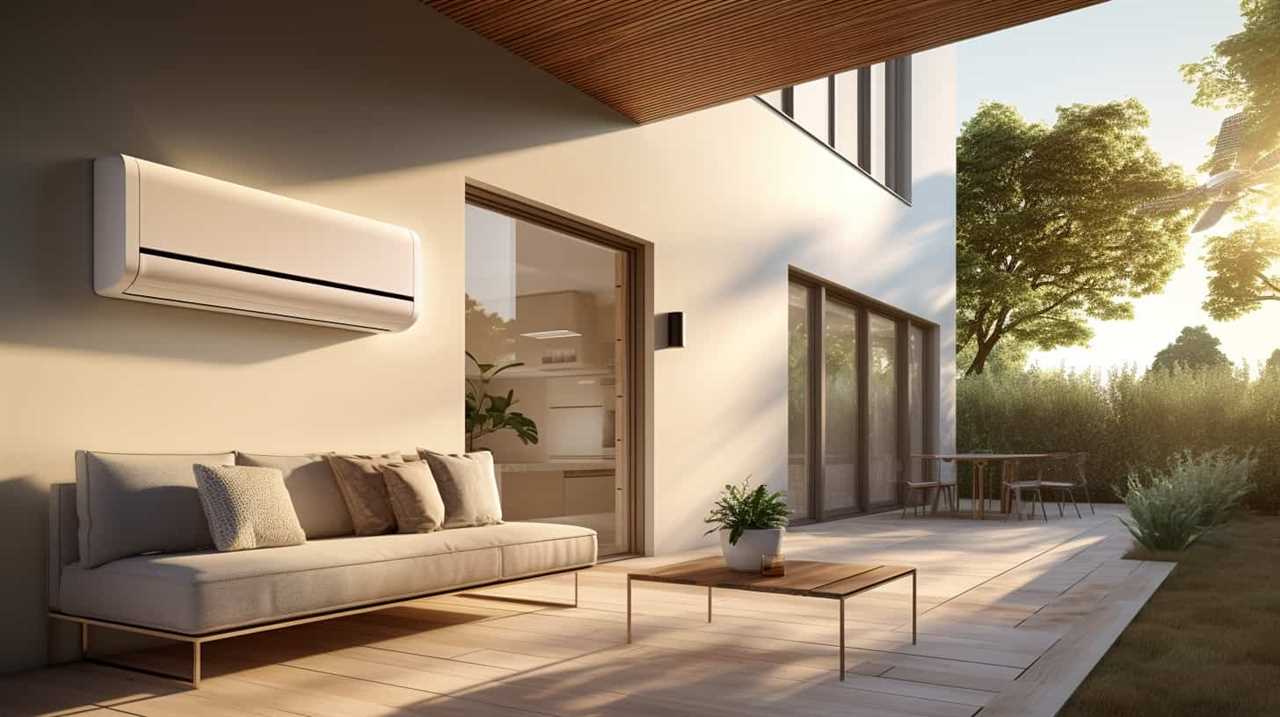
-
Cost reduction: By maximizing energy efficiency, programmable thermostats can help us save on our energy bills.
-
Customization: These thermostats offer various programming options, allowing us to personalize temperature settings based on our preferences and daily routines.
-
Environmental friendliness: By reducing energy consumption, programmable thermostats contribute to a greener and more sustainable living environment.
In the next section, we’ll explore smart technology integration for even more advanced energy management capabilities.
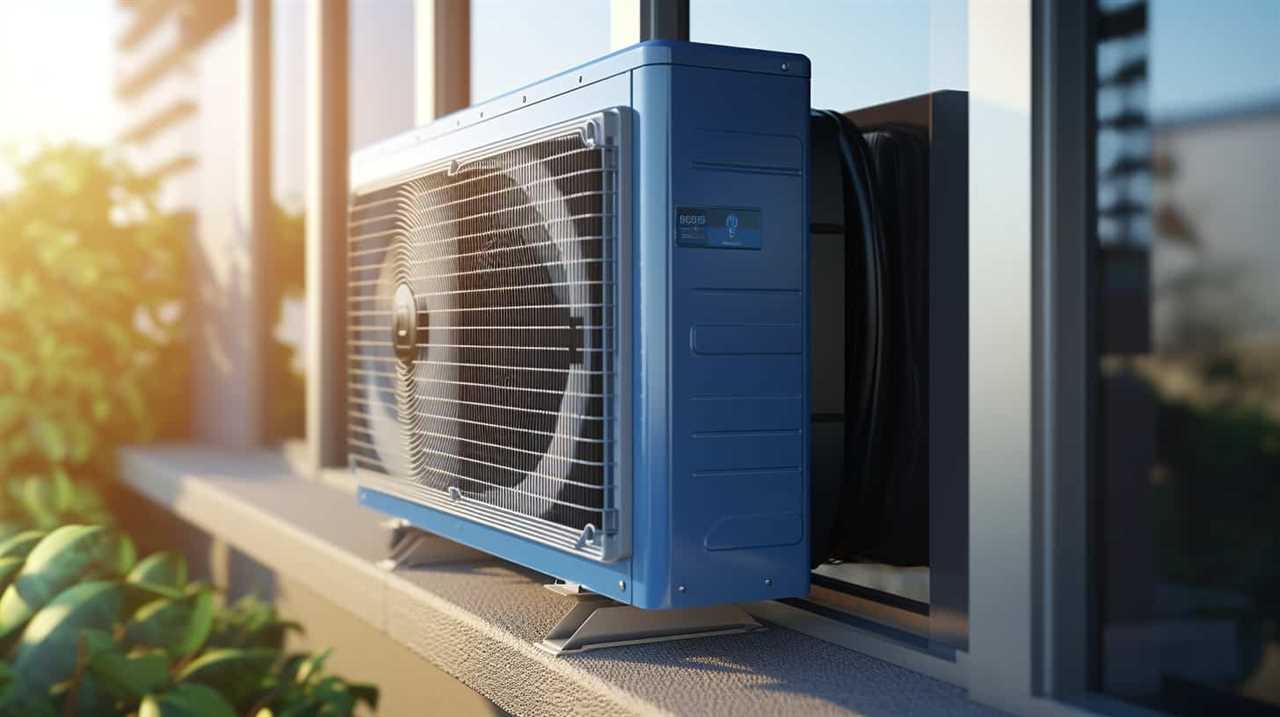
Exploring Smart Technology Integration for Energy Management
We can enhance energy management in residential settings by integrating smart technology.
Smart home integration allows homeowners to have greater control over their energy consumption and optimize the performance of their heat pumps.
By connecting the heat pump to a smart home system, energy management software can be used to monitor and adjust the temperature settings, schedule heating and cooling cycles, and track energy usage in real-time.
This integration provides homeowners with the ability to remotely control their heat pumps, ensuring maximum efficiency and comfort.

The energy management software can also analyze energy usage patterns and provide recommendations for further energy-saving measures.
Harnessing the Power of Geothermal Heat Pump Systems
Geothermal heat pump systems offer numerous benefits when it comes to residential heating. By tapping into the Earth’s natural heat, these systems provide consistent and reliable warmth throughout the year.
Installation and maintenance of geothermal heat pump systems are relatively straightforward, making them a practical choice for homeowners.
Additionally, these systems are cost-effective and provide significant energy savings over time, making them an attractive option for those looking to maximize residential heat pump efficiency.
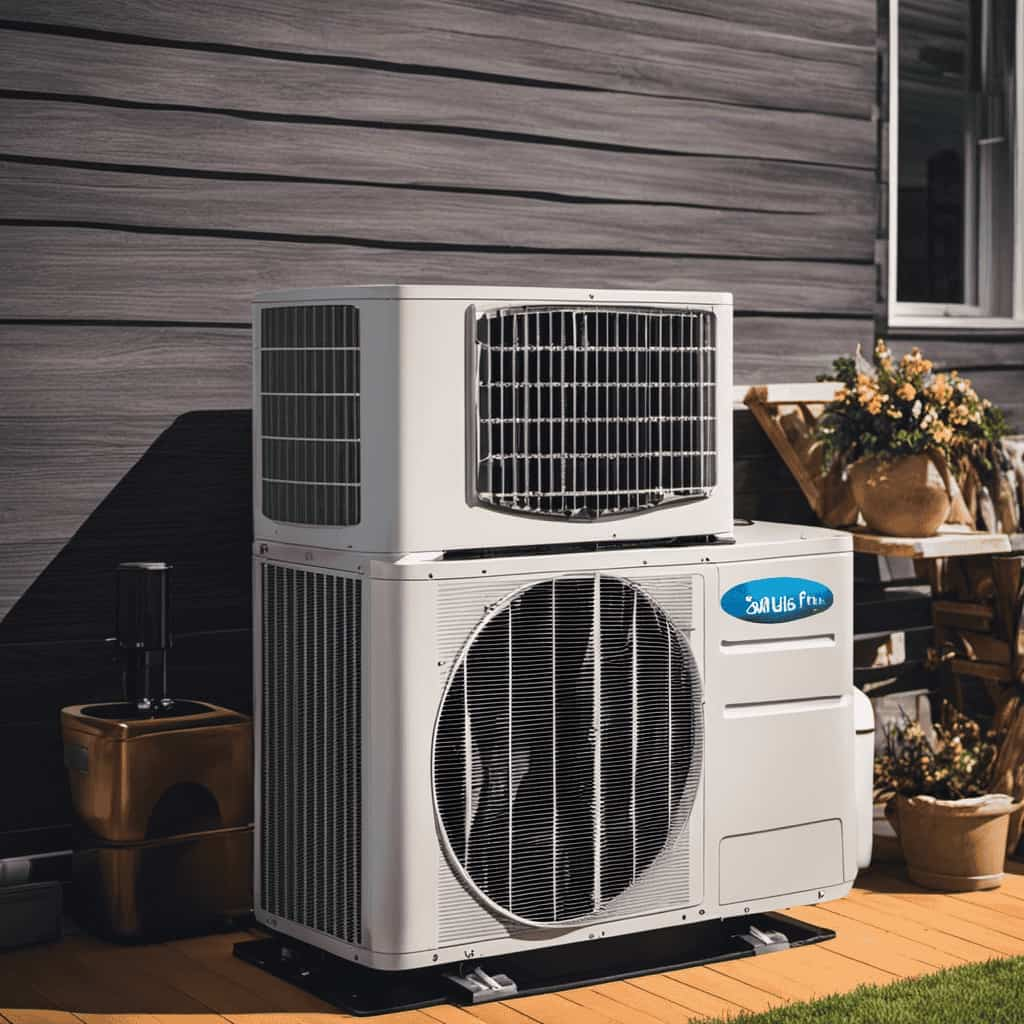
Benefits of Geothermal Heat
Let’s explore the advantages of tapping into geothermal heat through the utilization of geothermal heat pump systems.
-
Energy Efficiency: Geothermal heat pump systems are highly efficient and can provide substantial energy savings compared to traditional heating and cooling systems.
-
Environmental Benefits: By harnessing the renewable energy of geothermal heat, we can reduce greenhouse gas emissions and contribute to a cleaner and greener planet.
-
Versatility: Geothermal heat pump systems can be used for a wide range of applications, including residential heating and cooling, hot water production, and even snow melting.
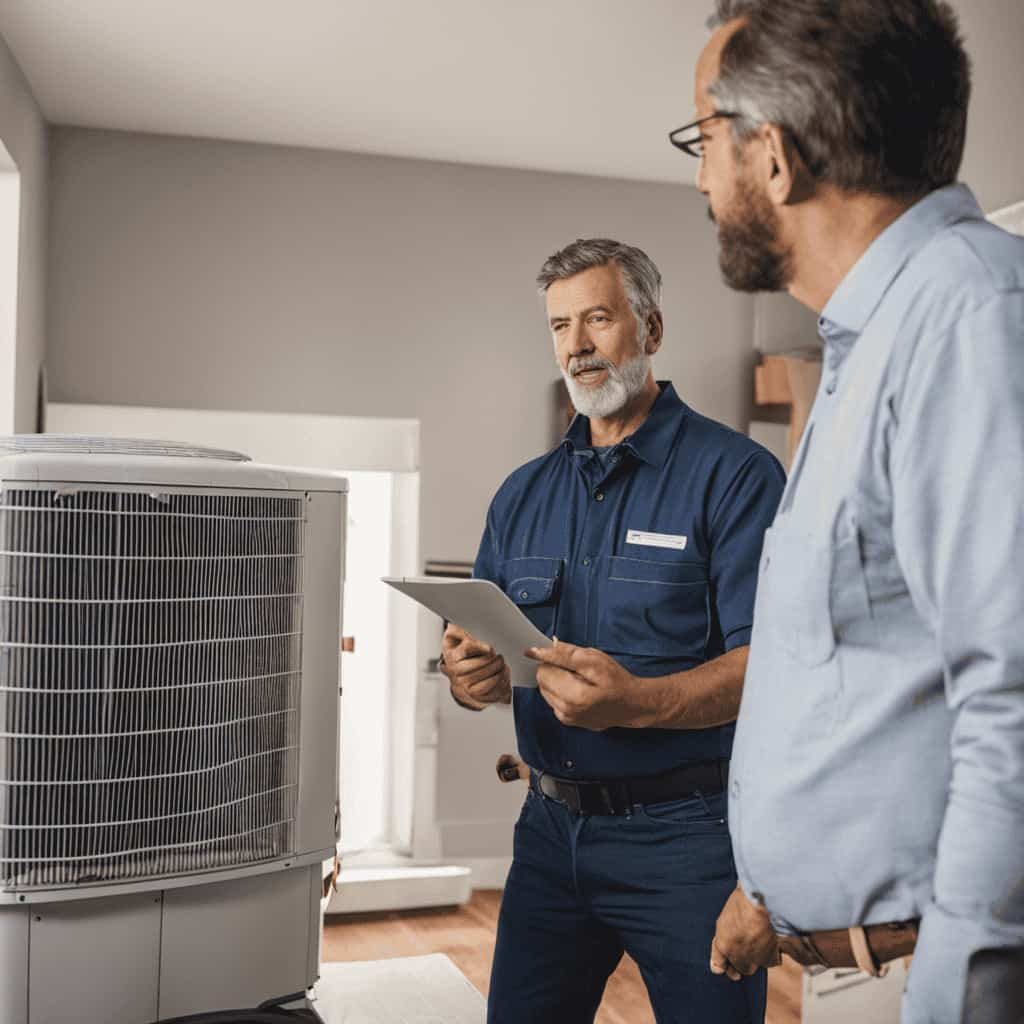
-
Longevity: Geothermal heat pump systems have a longer lifespan compared to conventional systems, resulting in lower maintenance costs and increased durability.
-
Technology Advancements: Recent advancements in geothermal heat technology have made these systems more affordable, reliable, and accessible to homeowners.
Installation and Maintenance
To ensure optimal performance and longevity of geothermal heat pump systems, it’s essential to focus on proper installation and regular maintenance.
When it comes to installation, it’s crucial to engage a qualified professional who understands the intricacies of geothermal systems. They’ll assess the site conditions, size the system appropriately, and ensure proper placement of the ground loops.

Regular maintenance is equally important in maximizing efficiency. This includes cleaning or replacing air filters regularly, checking refrigerant levels, and inspecting electrical connections.
Heat pump troubleshooting should be conducted by trained technicians to identify and address any issues promptly.
Additionally, homeowners should consider investing in energy efficient HVAC systems that are designed to work seamlessly with geothermal heat pumps.
Cost-Effectiveness and Energy Savings
By analyzing the cost-effectiveness and potential energy savings, we can fully harness the power of geothermal heat pump systems. These systems offer a range of benefits, including:
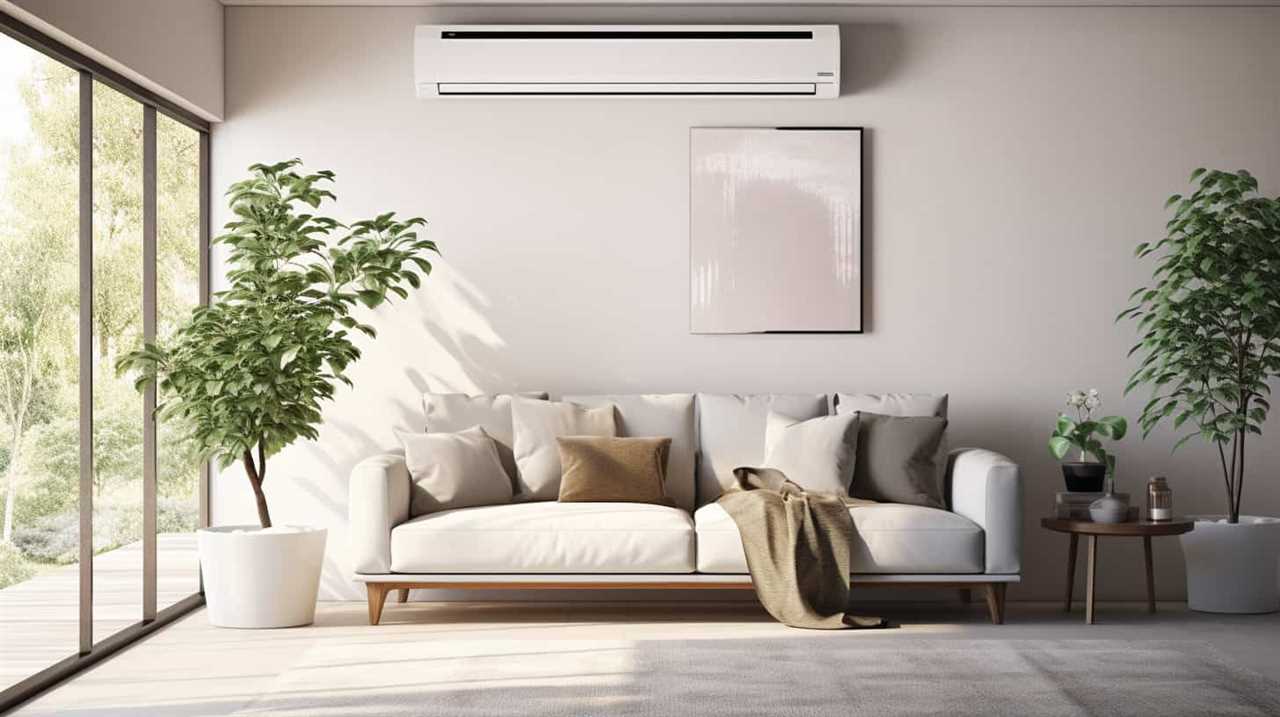
-
Cost benefit analysis: Geothermal heat pump systems may require a higher upfront investment compared to traditional heating and cooling systems. However, they can significantly reduce energy consumption and utility bills in the long run, making them cost-effective in the overall lifecycle.
-
Energy efficient upgrades: Geothermal heat pump systems utilize the constant temperature of the earth to heat and cool homes, resulting in reduced reliance on fossil fuels. This not only lowers greenhouse gas emissions but also contributes to a more sustainable and environmentally friendly living environment.
-
Lower maintenance costs: Geothermal heat pump systems have fewer mechanical components, reducing the need for frequent repairs and maintenance. This translates to lower maintenance costs and increased savings over time.
-
Increased home value: Installing a geothermal heat pump system can increase the value of your home, making it a worthwhile investment.
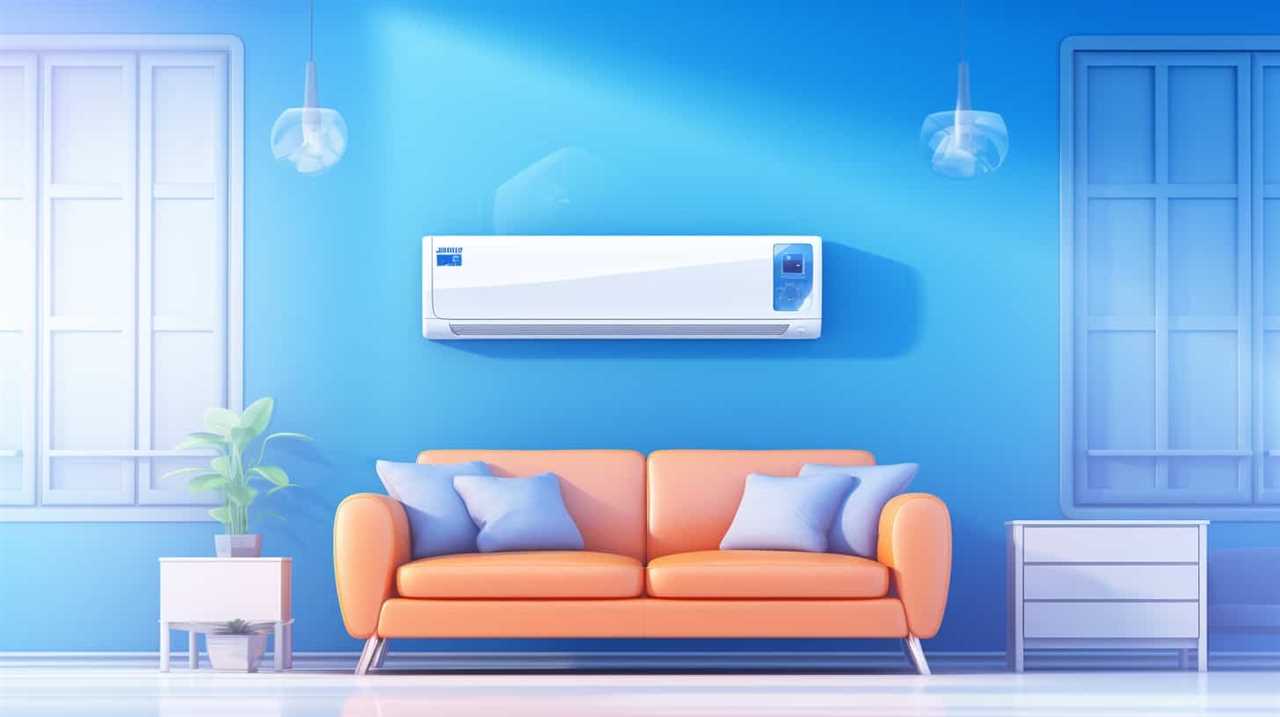
-
Government incentives: Many governments offer incentives and tax credits for installing energy-efficient systems like geothermal heat pumps, further reducing the overall cost.
Utilizing Dual Fuel Systems for Increased Efficiency
We can enhance the efficiency of residential heat pump systems by effectively utilizing dual fuel systems.
Dual fuel compatibility refers to the ability of a heat pump to be used in conjunction with another heating system, such as a furnace or boiler, that runs on a different fuel source.
This allows homeowners to switch between the two systems based on energy prices and outdoor temperatures, optimizing efficiency and reducing energy costs.

By utilizing dual fuel systems, homeowners can take advantage of the heat pump’s efficiency during moderate weather conditions and switch to the alternate heating system during extremely cold weather when the heat pump’s efficiency decreases.
This flexibility allows for better efficiency optimization and greater energy savings, making dual fuel systems a valuable addition to residential heating systems.
Taking Advantage of Government Incentives and Rebates for Energy-Efficient Heat Pumps
We can maximize the efficiency of our residential heat pumps by utilizing government incentives and rebates for energy-efficient systems. Taking advantage of these incentives not only helps us save money, but also promotes sustainable energy usage and reduces our carbon footprint.
Here are five key benefits of government incentives for energy-efficient heat pumps:

-
Financial savings: Government incentives and rebates can significantly offset the cost of purchasing and installing energy-efficient heat pumps, making them more affordable for homeowners.
-
Increased energy efficiency: Energy-efficient heat pumps consume less energy, resulting in lower utility bills and reduced energy consumption.
-
Environmental impact: By promoting the use of energy-efficient heat pumps, government incentives help reduce greenhouse gas emissions and contribute to a cleaner environment.
-
Long-term savings: Energy-efficient systems require less maintenance and have a longer lifespan, leading to reduced repair and replacement costs over time.

-
Economic growth: Implementing energy-efficient technologies stimulates economic growth by creating jobs in the clean energy sector.
Frequently Asked Questions
Can a Heat Pump Be Used for Both Heating and Cooling in a Residential Setting?
Yes, a heat pump can be used for both heating and cooling in a residential setting. It offers an efficient way to regulate indoor temperature and can help reduce heat pump costs. Regular heat pump maintenance is crucial for maximizing its efficiency.
Are There Any Special Considerations for Installing a Heat Pump in a Multi-Story Home?
Installing a heat pump in a multi-story home presents unique challenges. We must consider factors like airflow distribution, ductwork design, and zone control to optimize performance. Our guide provides solutions for maximizing efficiency in these installations.
How Can I Determine if My Home Has Sufficient Insulation and Air Sealing for Optimal Heat Pump Performance?
To determine if your home has sufficient insulation and air sealing for optimal heat pump performance, it is important to assess the insulation levels and check for any air leaks. Proper insulation and air sealing are crucial for maximizing heat pump efficiency.
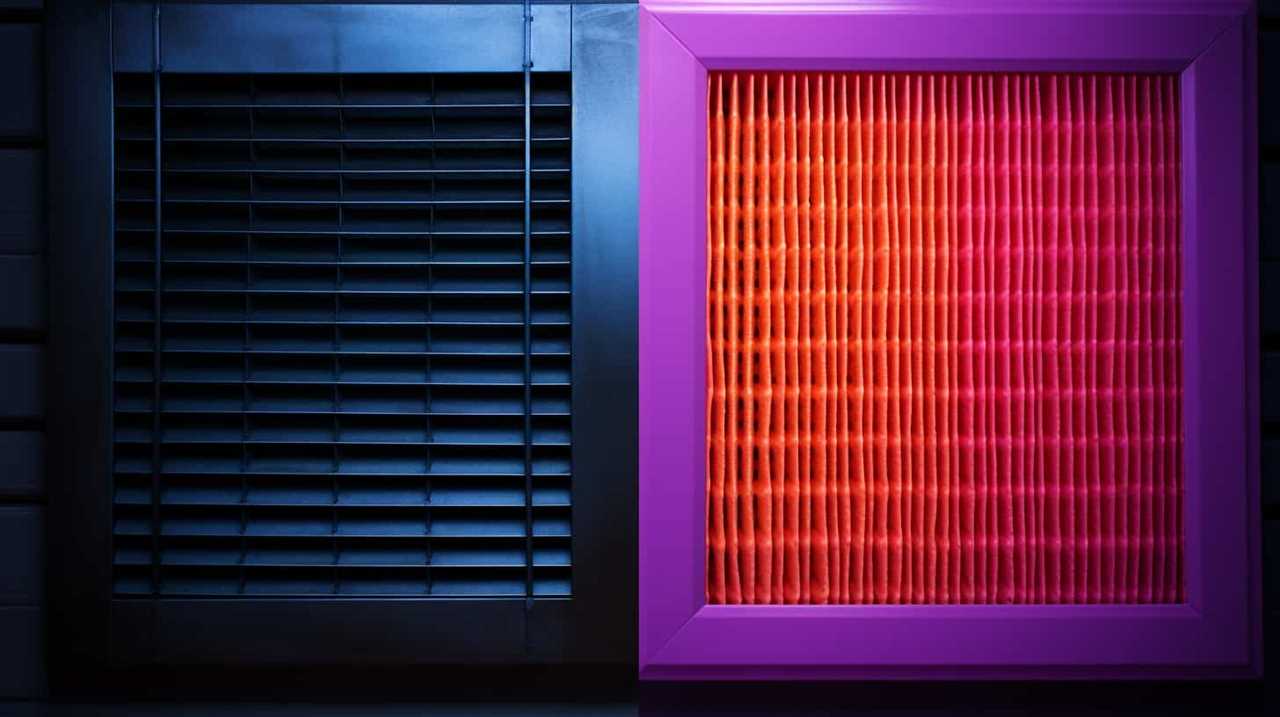
Are There Any Steps I Can Take to Improve the Efficiency of an Existing Heat Pump System?
To improve the efficiency of an existing heat pump system, we can take several steps. These include regular maintenance, such as cleaning or replacing filters, optimizing thermostat settings, and ensuring proper insulation and air sealing.
What Are the Potential Advantages and Disadvantages of Integrating Smart Technology With a Heat Pump for Energy Management?
Integrating smart technology with a heat pump for energy management has potential advantages, such as improved efficiency and convenience. However, there are also disadvantages to consider, such as increased initial costs and potential security vulnerabilities.
Conclusion
In conclusion, by following the strategies outlined in this guide, homeowners can maximize the efficiency of their residential heat pumps.
From understanding efficiency ratings to choosing the right size and capacity, optimal placement and installation, and proper insulation and air sealing, every step plays a crucial role in enhancing heat pump performance.
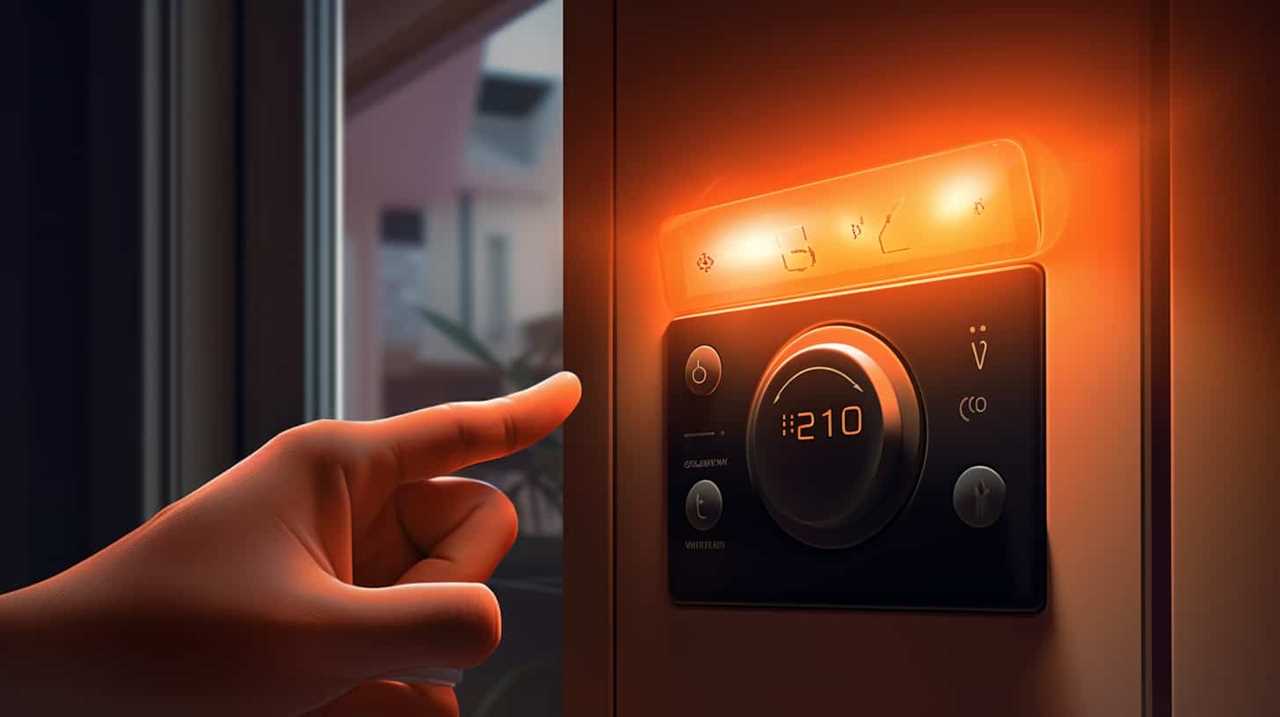
Regular maintenance, exploring smart technology integration, harnessing geothermal heat pump systems, utilizing dual fuel systems, and taking advantage of government incentives can further improve efficiency.
Start implementing these techniques today and experience the full potential of your heat pump system.






